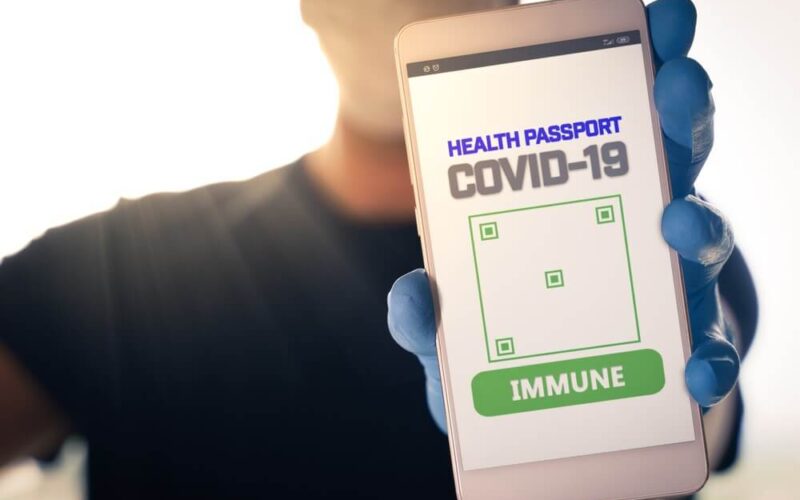VST Enterprises (VSTE), a British company specialized in cyber technologies, launched the world’s first virtual health passport for air travel.
The British company launched the V-Health Passport, the first publicly available digital “Fit to Fly” health passport that could be used for air travel. According to the company, people would be able to download and use the cross-border platform together with any form of the COVID-19 testing as well as vaccination, unless the device has insecure QR code technology or bar codes.
As the V-Health Passport uses the next generation VCode scanning cyber security technology, the airlines worldwide could also use the system to receive digital information about a passenger’s identity, their COVID-19 test result, and any other needed details about the passenger’s vaccination or immunization status. Passengers would also be able to use the V-Health Passport to provide their work permit or visa as well as scan their travel pass if needed. The technology could provide the airline and its passengers a “contact tracing technology which would use anonymized data”, read in the VSTE statement.
VSTE ensured that the technology would not track passengers’ live location data. Instead, all personal information would be provided in “a secure GDPR compliant framework“, which would give a passenger the ability to control with whom and when to share personal information.
“With V-Health Passport we wanted to provide functionality and greater mobility to allow citizens to return to work, be fit to fly, or return to the sports stadiums. But at the heart of the technology was the ability to protect and respect data privacy of the individual,“ said Louis James Davis, the CEO of VSTE and inventor of the V-Health passport technology, in a statement.
The conception of the digital health passport came at a time when the level of fake COVID-19 test certificates trades have significantly increased in the black market. The standard bar codes, as well as QR codes, can be hacked and an air carrier that would use the regular codes for the COVID-19 testing and vaccination authentication, would risk “ a serious potential breach of its passenger data,“ warned the VSTE.
According to the inventor of the idea, the VCode technology, which was installed into the new digital passport, would ensure the highest data security level as the code cannot be copied even if printed or photographed and placed over the V-Health Passport. The VCode is active only while working with a call-and-response system between the code and web platform, which verifies the exact location of the code, the user ID, date, and time as well as other needed data.

